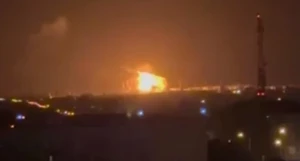
Is it worth quarreling with Poland for 'ingratitude'?
Ukraine has once again been accused of ingratitude. This time it came from our closest partner, Poland
The Polish official hinted that Ukraine should appreciate the help of its neighbors in recent years. This was immediately followed by summons to the ambassador's office and insults to Ukrainians on the Internet.
In fact, the statement by the Minister of the Polish President's Office, Marcin Przydacz, was a reaction to the information that on September 15 the EU might lift the ban on imports of grain of Ukrainian origin to Bulgaria, Hungary, Poland, Romania, and Slovakia. It was a commentary for the domestic consumer, the Polish farmer. Ahead of the parliamentary elections, a representative of the ruling party promised to protect his interest and let him earn money.
Therefore, it was more than unnecessary to make a scandal out of it, to invite Polish Ambassador to Ukraine Bartosz Cichocki for official talks. A statement on Facebook by one of the deputies of the Presidential Administration, Andrii Sybiha, would have been enough.
"The fact is that the flow of Ukrainian grain - legal and not so legal, white and "gray" - has become a real problem for the Polish farmer. And unlike the Ukrainian farmer, who is used to surviving on his own, the Pole will go to the government to demand that the problems be dealt with."
Bulgaria, Hungary, Poland, Romania, and Slovakia have become alternative transit routes for Ukrainian grain exports following the full-scale Russian invasion and blockade of Black Sea ports.
Russia's withdrawal from the grain deal, which it announced on July 17, and fresh attacks on the river ports of Reni and Izmail could lead to an increase in grain flows through these five Central European countries. Imports of wheat, corn, and sunflower of Ukrainian origin have literally hacked the domestic markets of our neighbors. So it is logical that our Western partners and allies in the war were wondering how to keep their trade going. And to feed their farmers.
President Volodymyr Zelenskyy expressed hope that the EU, whose competence is precisely trade policy, would help us and that the agricultural blockade would be lifted on September 15.
"However, we must offer fair rules on the territory of our neighbors instead. If the contracts stipulate transit, then transit is what it means. Anything else is corruption and abuse of certain preferential conditions for the Ukrainian seller."
The second factor in the intensification of Polish nationalist statements is the parliamentary elections this fall. The battle for who will govern Poland for the next five years will be fierce. Both parties, according to the latest ratings, are at about the same level of support. "Law and Justice currently has 34%, while its main rival, Civic Platform, has 28%. And while Jarosław Kaczyński, Andrzej Duda, and Donald Tusk have long been known to us as political heroes. An interesting pig in a poke has emerged as a favorite - the far-right Eurosceptic Confederation, which already has 11% of support.
"In the last election, the Confederation party made its debut in the Polish Sejm. It relied on the male population under the age of 30, who live in small towns and share right-wing views. This population is not always very intellectual, not interested in global politics."
For example, at one of the election meetings, one of the top figures of the Confederation party, Sławomir Mentzen, was asked by supporters how he would vote if a referendum on Poland's withdrawal from the European Union were held now. He answered this question for five minutes and in the end did not answer. As for his position on Ukraine, it's even more complicated. Somewhere it fits into a pattern: "We are for peace, we are against war, we need to negotiate, this is not our war." They say that we should obviously help Ukraine, but first of all, we should think about Polish citizens and national interests.
In Sejm votes, Confederation MPs often vote with PiS. So, it is likely that the ruling party's flirtation with farmers is an attempt to keep the electorate from flowing to their young and ambitious colleagues. And it is also a signal to the voting partners themselves - with whom they should form a coalition after the elections against the Civic Platform. Only such a configuration, given the current ratings, can keep the current opposition in the opposition.
What conclusion can be drawn from this story?
The closer we get to October, the more different Polish politicians will speculate on different issues for the sake of electoral bonuses. They will touch upon the topics of grain, the war, and Ukrainian labor migrants. Among other things, they will fight for the votes of Poles who are dissatisfied with the need to help Ukraine and accept Ukrainians in their country.
We need to understand this, and endure temporary inconveniences. And do everything we can to prevent the pre-election story from turning into real political hatred. On the morning of February 24, 2022, when two neighbors were stabbing us in the back and reveling in how Ukraine was bleeding, the Poles opened their borders. And they became our ally and advocate. Therefore, if we have to pretend that we don't hear or see anything in the domestic Polish kitchen for two months, this is a perfectly reasonable decision.
Specially for Espreso
About the author: Maryna Danyliuk-Yarmolaieva, journalist.
The editors don't always share the opinions expressed by the authors of the blogs.
- News














































